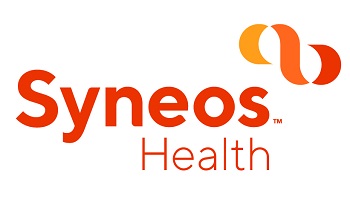
Syneos Convenes Symposium on Rare Diseases

Despite significant progress in biomedicine, rare diseases are still far from rare.
More than 300 million people worldwide (25 to 30 million in the U.S.) who suffer from the more than 7,000 rare diseases still have no effective therapies. For many, diagnosis is difficult, complex and ineffective. However, the fight against rare diseases continues and there is hope. Biotech advances are increasing, investment is at an all-time high and the voices of patient advocates are stronger than ever.
Syneos Health is joining the worldwide annual observance of Rare Disease Day, Thursday, February 28, by hosting a free public in-depth Rare Disease Day Symposium, from 11:30 a.m. to 3 p.m., at its new global headquarters in Morrisville.
Senior-level leaders in rare disease research and development, those who diagnose and treat rare disease patients, patient advocacy leaders, those involved in regulations and policy for rare disease development, and venture capitalists or those with an investment interest in healthcare and the rare disease space should plan to attend.
The Symposium will bring together leaders in the rare disease sector for presentations and discussion about the future state of clinical research. It will also feature the perspectives of patients, legislators, regulatory experts, physicians and sponsors, as well as the latest local and national initiatives driving change in rare disease.
Confirmed speakers are:
- Nick Kenny, chief scientific officer, Syneos Health
- Tara J. Britt, associate chair, NC Rare Disease Network/Advisory Council; development officer, UNC Medicine
- Leslie Nelson-Bernier, president, Medical Foundation of NC and associate dean for development, UNC School of Medicine
- Charlene Cowell, executive director, Hemophilia of NC
- Kathleen Henry, National Organization for Rare Disorders' North Carolina state ambassador
- Peter J. Pitts, president and co-founder, Center for Medicine in the Public Interest; Former FDA associate commissioner for external relations
- Ed Pezella, CEO of Enlightenment Bioconsult, LLC; former VP for pharmaceutical policy, Aetna
- Rep. Becky Carney, NC General Assembly, House of Representatives
- Moke Sharma, head of development operations, Alexion Pharmaceuticals
Additional speakers will be added. Click here to register for the free event.
Syneos is a corporate supporter of NORD (National Organization for Rare Disorders) and EURORDIS (European Organisation for Rare Diseases), both alliances of hundreds of patient advocacy groups for individual rare diseases, and is committed to working with key stakeholders to accelerate clinical research for rare diseases. EURODIS observed the first Rare Disease Day, February 29, 2008. It chose leap day because it is “rare” on the calendar. NORD, a U.S. organization, joined the annual observance in 2009.
The purpose of the campaign is to raise awareness among the public, policy makers, the health industry, researchers and anyone with a stake in rare diseases, according to the Rare Disease Day website. Awareness-raising activities, educational events and symposia, such as this one, will take place in more than 90 countries around the world.
According to the definition created by Congress in the Orphan Drug Act of 1983 (ODA), a rare disease is a condition that affects fewer than 200,000 people. Amyotrophic lateral sclerosis (ALS or Lou Gehrig’s disease), Tourette syndrome and muscular dystrophy are three of the more commonly known among the many rare diseases. Few have heard about most of the others.
President Ronald Reagan signed the ODA into law in 1983 to facilitate development of therapies that, because of the small size of their potential market, would not be possible to produce without government assistance. Other countries have followed with similar legislation. Today, there are more than 10 times as many therapies with orphan drug designation available to patients as there were before passage of the ODA.
